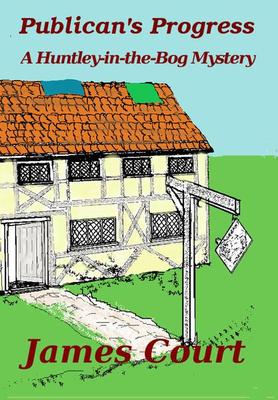Sign up now to get the most out of Books2Read
We're always making new tools to help you discover, save, and share your favorite books.
Sign up now to get updates whenever we release new features!
Discover something great at Books2Read.
We're always making new tools to help you discover, save, and share your favorite books.
Watch your email for exciting announcements and new features coming soon!
Thanks for signing up for Books2Read notifications!
Check your inbox for a confirmation email with instructions to finish signing up.



James Court

James was brought up in Hove, Sussex, on the slopes of the South Downs, but with some of his childhood time spent in rural Huntingdonshire. From an early age he wrote fiction, including co-writing a well received comic pantomime for the local YMCA in his teens.
James is best known for his humorous novels. Especially his series of four volumes describing life in Peckham, South London, in the 1960s. The Peckham Novels are set in a factory, staffed by idiots and run by an incompetent boss, until the beautiful Tracey Mulligan takes a hand in its management.
They are quirky, comedic and highly improbable. One reviewer described them as ‘The Carry On’ team meet Tom Sharpe’.
Book 1 - Strudwick's Successor
Book 2 - Mulligan's Revenge
Book 3 - Paint the Town Red
Book 4 - Farewell to Peckham
Also set in the late sixties is The Parsonage Plots, another comedic novel set around a number of idiosyncratic allotment plot holders.
Set in Bournemouth in the 1960s, Percy’s Predicament tells the tale of lost love, and crime in the world of accountancy. But not everybody is what they claim to be, and bets on the colour of hippy’s nail varnish are an established office pastime.
Moving back in time to 1955, Publican’s Progress is a Wodehouse style humorous murder mystery set in rural Dorset. The main character is a young man who has always wanted to run a pub. But, like the wishes granted by fairies to greedy children, when he does get offered a tenancy he quickly finds that having your wish come true does not always end happily, and life can get very complicated. Then the body count starts to rise...
James’s humorous rural romantic two part novel, The Whitedown Chronicles, which is set in post-war Kent, describes an isolated community as it struggles to put tragedy behind it.
James is a member of a group of writers who collectively form the INCA Project. The project is a set of like-minded authors who aspire to meet a simple criterion as set down by the late Oscar Wilde, who said, and I paraphrase here, "There are no such things as bad books. They are well written or badly written, that is all."
